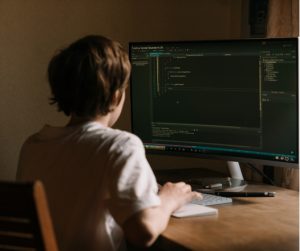Exams vs coursework
 There was a huge collective intake of breath in the teaching profession when news broke that a Grammar school student had hacked into a computer system and leaked exams and marking schemes.
There was a huge collective intake of breath in the teaching profession when news broke that a Grammar school student had hacked into a computer system and leaked exams and marking schemes.
Bourne Grammar School in Lincolnshire said it had immediately launched an investigation into the incident after staff became aware of the hack.
According to the Stamford Mercury, papers in maths, biology, English language and further maths were leaked – no doubt to the delight of students taking the exams.
Perhaps the computer teacher might have puffed his cheeks out with embarrassed pride, but it makes a mockery of a system that must be completely secure.
However, this rare event pales into insignificance when we consider the debacle in exam grade inflation that occurred because of Covid and the implementation of teacher assessments.
It demonstrated that a purely teacher-assessed system is completely unfair because it is almost impossible to moderate students’ work across the country.
During this period the number of those achieving an A or A* doubled – and it’s not because the children have suddenly become cleverer.
When a large part of GCSE English was coursework-based I was responsible, as Head of English, for grading in my school. And it was an extremely difficult task.
We sent samples of the coursework that we had graded to a moderator, and they checked whether our grading was accurate.
However, we now face bigger issues with grading. It is hard to know whether the coursework that is done at home is the work of the student or has come from another source. What or who are those sources?
Every parent wants their child to do well, and if you are a middle class, well educated person it is in your power to ensure the coursework is correct and will achieve top marks.
Many less educated parents, or those from abroad, would not be able to assist their children in this way. It is unfair.
Furthermore, those with wealth can instruct tutors to assist children with schoolwork.
There will be some tutors who are less scrupulous than others and are willing to help a student with their coursework.
Some will do it in a judicious and supportive way and won’t dictate material to be copied, but it is very easy to cross this line when you’re being paid by a parent.
Then there are organisations that provide model answers to questions for a fee.
As this is original work produced by an employed writer it will not be picked up as plagiarism by software such as Turnitin.
Companies that provide model answers claim they are just giving a structure and some ideas in how to approach the coursework, but such justifications are highly questionable.
The internet and a vast array of resources are readily available to any student who Googles a particular question.
There will already be answers, papers and essays that can be drawn upon.
This is of course if the child has access to a decent computer and has internet access, something which is not available to every child.
These four reasons mean it is impossible to monitor coursework in the school context.
The only way any fair coursework can be done is in a timed setting during the school day.
Each student would be allowed to bring in a limited number of sources and they would be able to construct a piece of coursework over a set number of hours under strict supervision.
This would in part silence the critics who say that many students find exams very stressful and are not particularly good at them.
Ultimately exams and tests are there to give schools, parents, colleges, universities, the government and students themselves accurate information on ability and attainment levels.
Unless it is supervised, coursework does not do this.
A mix of exams and highly supervised, strictly monitored timed coursework would work, but exams should be the major method of assessing students.